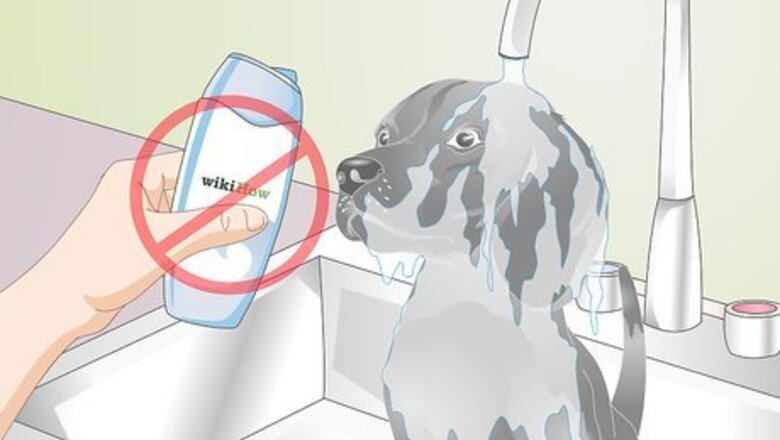
views
Making Changes to Your Dog's Regimen
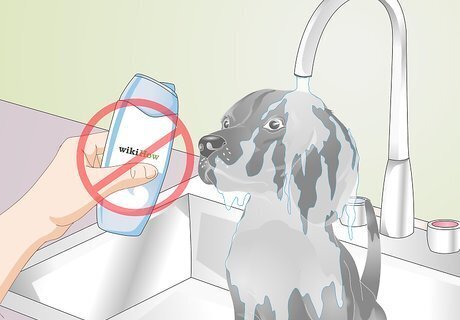
Skip the shampoo. When you give your dog a bath, try skipping the shampoo, which can be drying, and just using water. If you want to use a shampoo, make sure to pick one that's moisturizing. Check to see if it has humectants in it to better moisturize your dog. You can also use a conditioner afterwards to help decrease dryness. Make sure any shampoo and conditioner you use is meant for dogs.

Avoid blow drying your dog. Blow drying your dog's coat only dries out the hair and skin. Instead, dry your dog off as well as possible with towels. If you go to a groomer's, ask them to turn the heat down on the blow dryer for your dog, which will also help.

Keep your dog inside more in colder weather. When it's cold out, your senior dog may want to stay inside in the warmth more than it did when it was younger. You should encourage that behavior, as the cold air can contribute to dry skin.
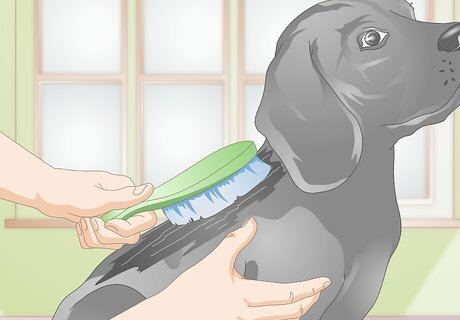
Brush your dog's coat regularly. Brushing your dog's coat helps increase oil production from its skin. Older dogs do have more trouble producing oil, but this technique can still help to increase the oil in your dog's skin and coat. Try to brush your dog's coat every couple of days. Combs or pin-head brushes work on most dogs. Don't use a shedding brush all the time, as that can be too harsh, especially for an older dog. If your dog isn't used to regular brushing, try giving him treats and praise as you pet it, as it will then associate happy things with brushing.
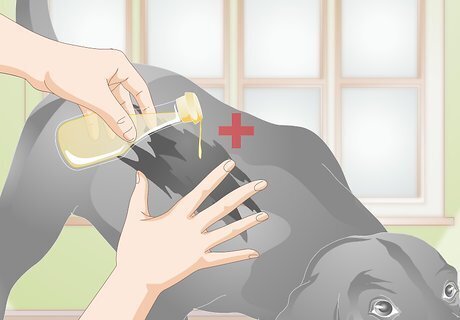
Add oils. Just like you, your senior dog can benefit from moisturizer. However, don't slather your hand cream on your dog. Rather, stick to natural oils, such as coconut oil. You can apply coconut oil directly to your dog's skin and coat. Generally, once a week is enough, but you can apply it more, especially if you find your older dog needs it. Sweet almond oil is also safe for dogs.
Supplementing Your Dog's Diet
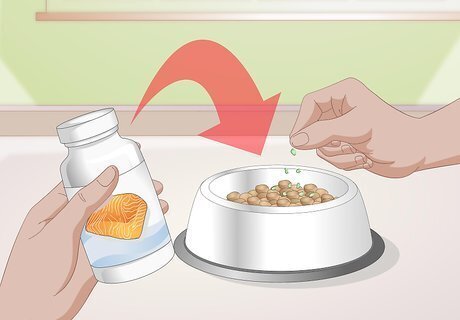
Think about adding a fatty acid supplement. If your elderly dog has lost some of the gloss to its coat, it may be due to a deficiency of fatty acids, which are essential to a dog's (and human's!) diet. You can find supplements at the pet store or from your vet meant for dogs. Ask your vet before starting a supplement for your dog.
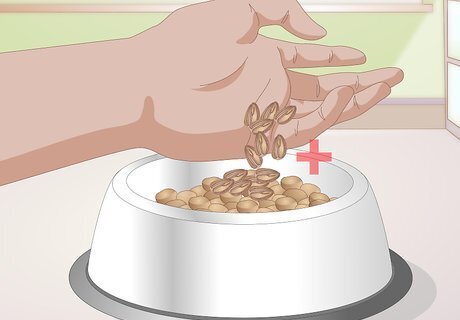
Add in flax seed to your dog's food. In place of a fatty acid supplement, try adding flax seed oil or flax seeds to your dog's food. You can use 1/2 a teaspoon per every 15 pounds of dog. That is, if your dog is 30 pounds, you can use a teaspoon. Try this supplement twice a day. If you use seeds, make sure they're freshly ground. You can use 1 1/2 teaspoons per 15 pounds of twice a day.
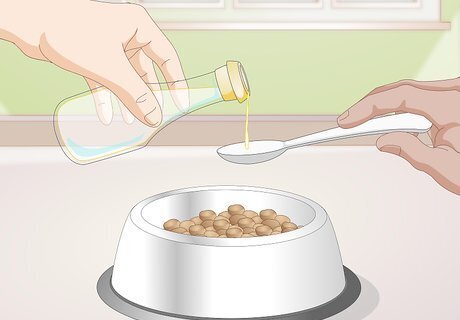
Try olive or coconut oil. Another supplement that could help your dog's coat and skin is adding olive or coconut oil to its diet. You can add as a little as a couple of tablespoons a week or as much as 1 teaspoon per 10 pounds of dog per day. It's best to start with smaller doses (such as a 1/4 teaspoon per 10 pounds of dog) and work up to larger doses to see how it will affect your dog. For instance, if your dog weighs 20 pounds, you can add 1/2 teaspoon to 2 teaspoons per day. Salmon oil is another great ingredient for your dog's coat.
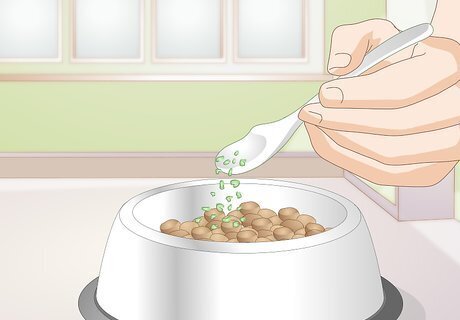
Consider herbs or other supplements. Other herbs may help with your elderly dog's coat and skin. You can try supplements such as kelp powder, horsetail, nettles, nutritional yeast, or alfalfa, by pouring a teaspoon or less over the dog's food. You can also try spirulina, which can be given in doses of 500 to 1,000 milligrams two times a day. Always ask your vet about supplements.
Considering Other Conditions
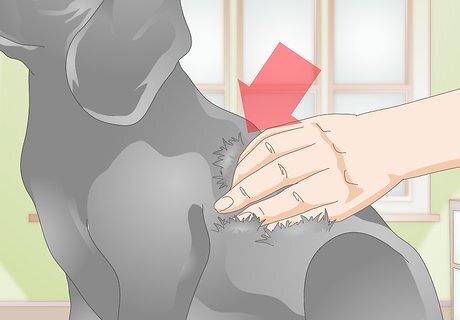
Watch for sudden changes. Gradual changes as your dog ages are not as much of a concern as a sudden change. A sudden change in your dog's coat or skin is much more likely to indicate a new disease or skin condition, so make sure to pay attention to major changes. For example, if your dog's coat suddenly gets more dry or flaky, rather than over time, that could be a sign your dog has another problem.
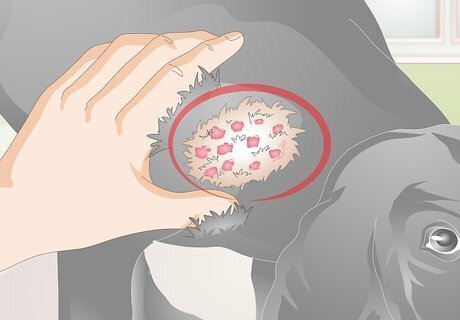
Think about allergies. While your dog will not likely develop allergies in old age if it hasn't earlier in life, allergies can worsen as your dog ages. More severe allergies can lead to drier skin or changes in the dog's coat. Talk to your vet about what can help with your dog's allergies if you suspect that's the cause. Your vet may recommend a change in diet, or they may prescribe an antihistamine.
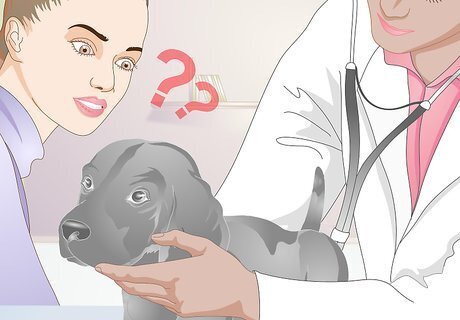
Talk to your vet. While you may think it's just dry skin, flaky or scaly skin can be a sign of other conditions, such as mange, bacterial infections, Cushing's disease, and flea bite sensitivity, just to name a few. Therefore, it's always a good idea to get your dog checked out with a vet when you notice something like dry skin. For example, you could say, "I've noticed my dog's skin has suddenly gotten flaky. It tends to flake off in big, yellow flakes. Do you think that could be a sign of something more serious?"




















Comments
0 comment